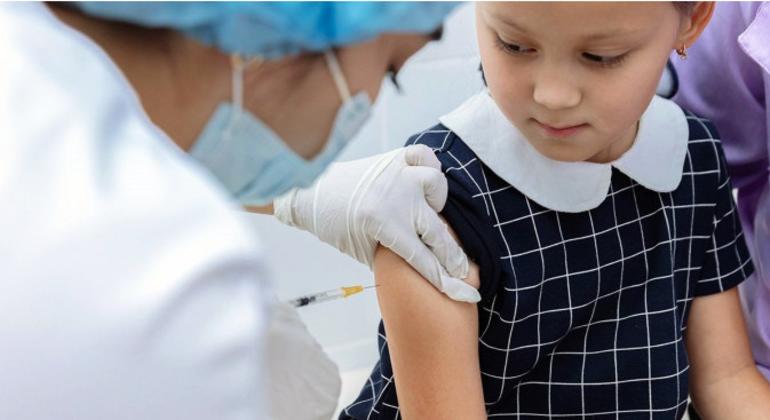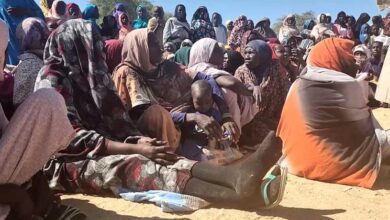World News Brief: Vaccine ‘patch’ trial shows promise, reduces risk of catheter infections, Guantanamo detainees face recidivism


But now there may be an easier alternative in the form of patches that can simply be applied to the skin, like a sticky plaster.
Early data from a vaccine patch trial in Gambia has shown promising signs that it may be effective in protecting children from measles.
United Nations World Health Organization (WHO) has been helping develop these vaccine microarray patches – or MAPS – as they are known, for several years now.
Birgitte Giersing, WHO’s vaccine product research and vaccine delivery lead, said the patches could be a major breakthrough in protecting vulnerable populations from diseases that can preventable.
Breakthrough potential
“They are a potential breakthrough vaccine delivery technology that could really contribute to increasing coverage of life-saving vaccines such as measles and rubella… especially for in places with limited resources”.
“And this is because they can be delivered more easily than vaccines that require injections, especially during outbreaks or in humanitarian emergency situations.”
Dr. Giersing explains that the patch may be especially useful in fighting measles and rubella. Vaccines for both diseases have been available for decades but coverage has decreased during this period. COVID-19 pandemic and now millions of children are susceptible to the disease in many countries.
“People may be more willing to get vaccinated with a patch than with a needle, so there really is an tolerability advantage” to the patch, Dr. Giersing said.
The first guidelines on reducing the incidence of catheter-associated infections are published
In other health news, WHO on Thursday published its first global guidelines to prevent sepsis and other infections caused by using catheters placed in small blood vessels while patients are having minor procedures.
Poor practice in the routine use of catheters – such as the way they are inserted and removed in the arm – can lead to a high risk of infection entering the system through the blood.
Serious consequences
WHO says this can lead to serious conditions such as sepsis and difficult-to-treat complications in major organs such as the brain and kidneys.
Soft tissue infection at the catheter insertion site may also occur.
People receiving conventional tube therapy are especially vulnerable to infection because they may be very ill or have low immunity.
WHO estimates that between 2000 and 2018, the average mortality rate in patients with healthcare-associated sepsis was 24.4%, increasing to 52.3% in patients treated at Intensive care units.
Dr Bruce Aylward, Assistant Director-General of WHO, said: “Infections associated with health care delivery are a preventable tragedy and a serious threat to the quality and the safety of health care services”.
“Implementing recommendations for clean care and infection prevention and control is critical to saving lives and reducing so much avoidable suffering experienced by people around the world.”
The new instructions includes 14 good practice statements and 23 recommendations on key areas for health workers, including better education and training for health workers.
Former Guantanamo Bay Prisoner Faces Recidivism in Algeria: Rights Experts
A former Guantanamo Bay detainee now facing terrorism charges in Algeria should have had the case against him dropped because he had no chance of a fair trial, independent rights experts said Thursday.
Saeed Bakhouche was transferred from a US detention center to Algeria in April 2023, with assurances that he would be treated humanely.
But he was immediately arrested in Algeria, “held in solitary confinement… threatened with interrogation and denied legal representation.”
In the dock
Human rights experts say he will be tried later this month. Eastern Human Rights Associationreceives no salary and is completely independent of any government or organization.
In a statement, human rights experts including Ben Saul, Special Rapporteur on counter-terrorismsaid Mr. Bakhouche spent more than 20 years at the notorious US military prison in Cuba, which was opened to detain terrorist suspects after the 9/11 attacks.
Experts noted that Mr. Bakhouche was tortured at Guantanamo and suffered from post-traumatic stress disorder and depression. They warned that he “cannot receive a fair and public trial in a national security case” in Algeria.
Among their other concerns, human rights experts highlight “the overly broad definition of terrorism” in Algeria and the threat that Mr. Bakhouche will be detained in prisons “with the risk of torture.” were recorded”.




